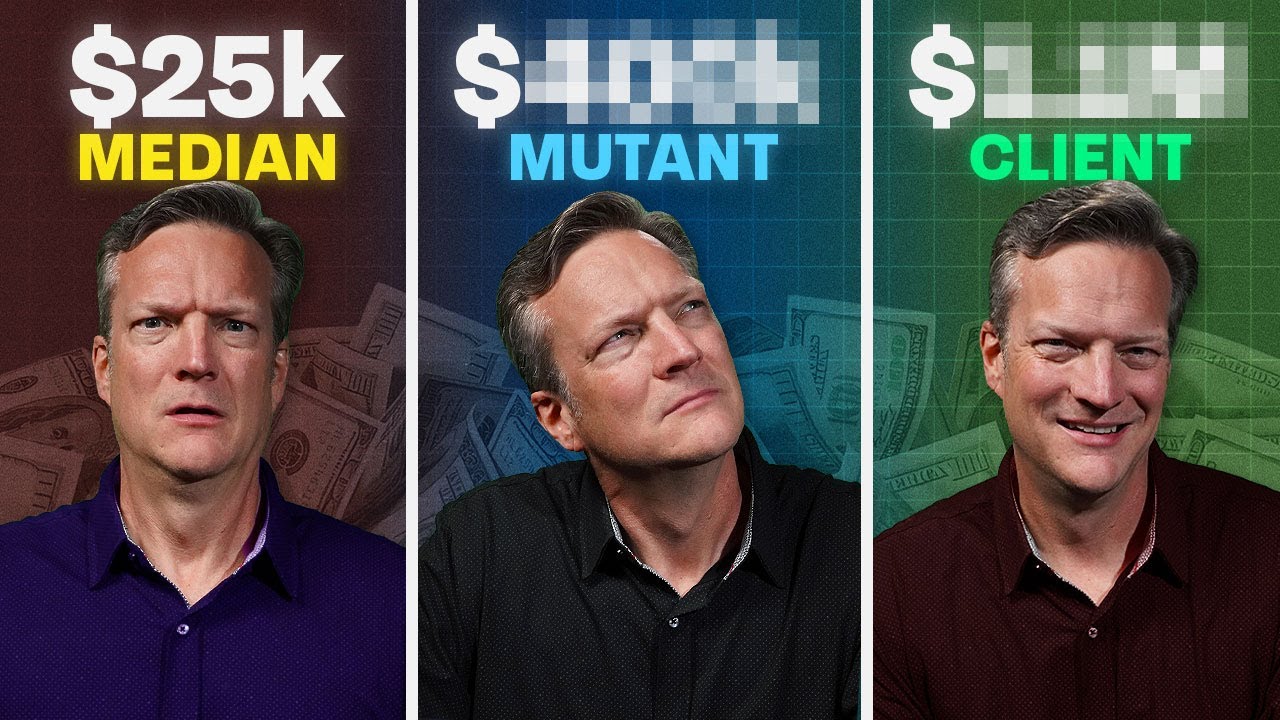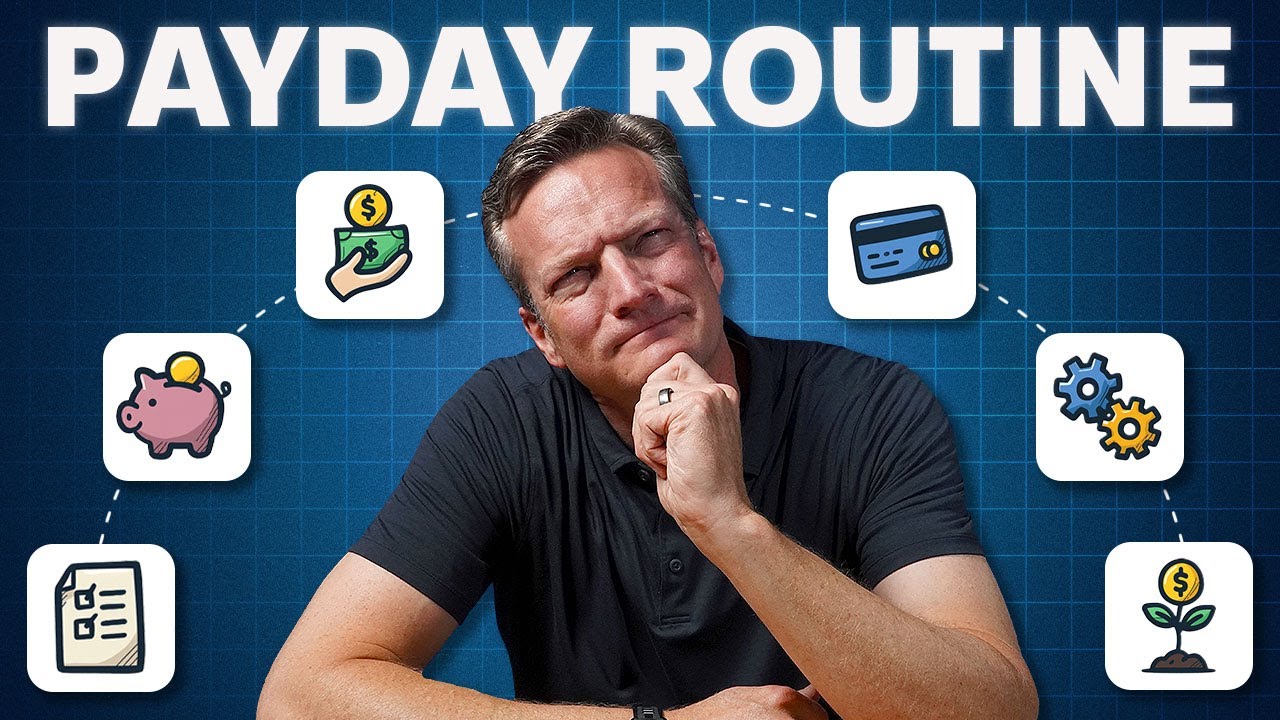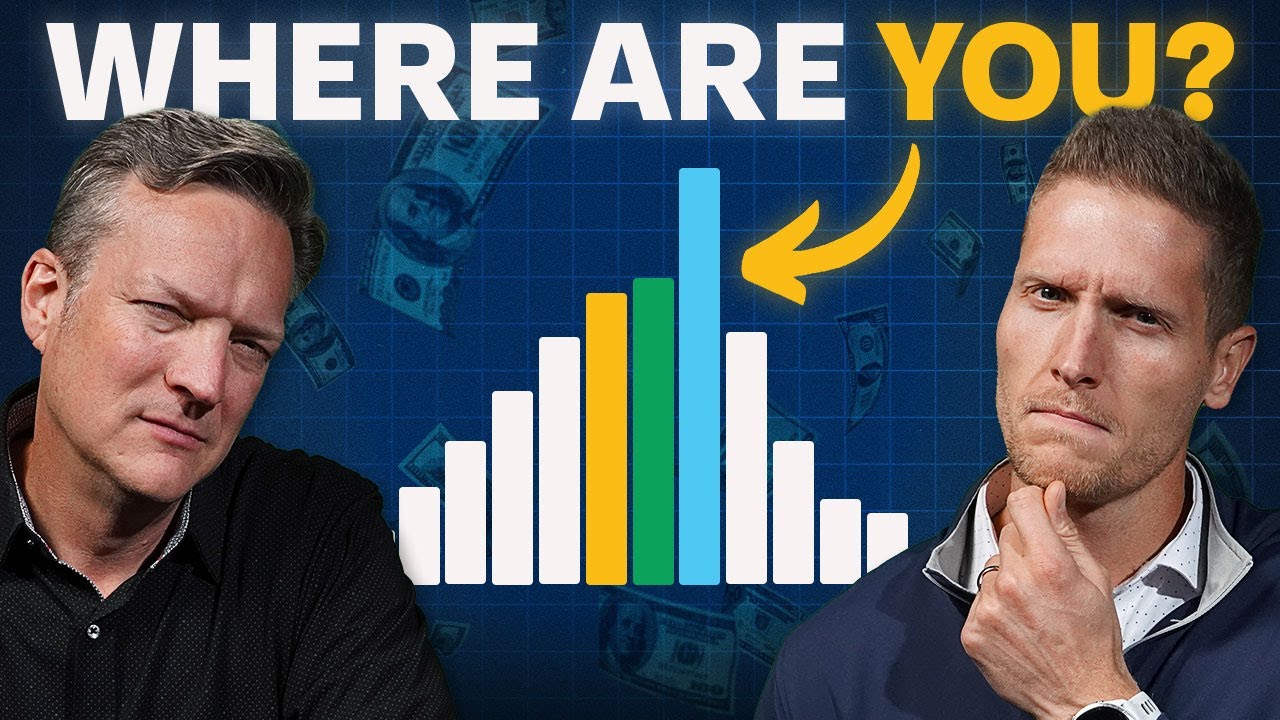Next question is from Nate. He says, "How do I start building my credit responsibly? I've never had a credit card, but I'm looking to buy my first house in a couple of years, and I would love to have a strong credit score. First, what do y'all think?"
Alright, how to start building your credit responsibly? I can tell you how not to do it. I've made all those mistakes, but keep going. I think the first thing you ought to ask is, "What goes into my credit score?" Now, Brian, I am pulling deep from the archives here, so you gotta correct me if I'm wrong on any of this stuff, but I think I'm right on this, Nate. And Daniel, would you listen to me closely in case I say something wrong? So, there are five things that go into your credit score that are pretty important. Number one, which is the largest percentage of your credit score, is made up of your payment history. Am I paying off the debts that I owe? Do I miss any payments? Do I make any payments? That is a pretty big one that you want to make sure that you keep an eye on.
The second one, and I don't remember this, the second in size is credit utilization. If I have at least 30 percent of this ten thousand dollars of credit available to me, am I running nine thousand dollars of that? Am I running one thousand? You want to have a favorable credit utilization so you don't look like a big risk.
The next one is length of credit history. How long have you had credit history? If you opened up a student credit card in college, that's great. Make sure you leave that line open so that it stays open. If you go close down those credit lines, what actually happens is your timeline moves up. So, we actually tell people the very first credit card that you ever open up, you kind of want to leave open forever because you want to establish that credit history really, really early on and have a really long credit history behind you.
Next is going to be the type of credit you have. Do you have revolving credit like credit cards, or do you have secured credit like an auto loan or a home loan? They want to measure what types you have. The last thing is credit inquiries. How often are you acquiring? How often are you asking for new credit? How often are you applying for lines of credit, credit cards, that sort of thing? So, if you understand those five things, you want to do the positive part of those five things, like pay your bills, have a long-term credit history, have good credit utilization, have different types of credit. And you know what are the bad sides? Miss paying your bills, close all your accounts, get rid of it so that you can improve your credit score. Now, for somebody starting out, Brian, I think this is a great question because you have a young daughter on the cusp of, like, getting out in the real world and doing all of her own stuff. And she said, "Hey, Dad, how do I go about building my credit? What are some things you'd recommend? What's the right way to approach?"
I mean, I'm also going to share two wrongs and a right that I've made in my own life, give you some experience here. But I think what Bo's alluding to is that you should probably set up some type of credit history. So, you need to get a credit card. I know there's a lot of content out there saying, "Don't go get credit cards. Credit cards are bad." But you know so many things that are now pulling off of your credit rating. Whether it's your homeowner's insurance or when you go set up your utilities, they're gonna go pull your credit rating. So, you gotta have... you can't be a ghost. You can be a ghost when you're rich, but when you're not rich, you need to have good credit. So that's fine, but it is... and Bo, you nailed it. I'm really impressed because I recently looked at some content that had all the credit rating and the FICO scores and stuff, and you did a great job. I would tell somebody, 'Look, you ought to go download something like a Credit Karma or something like that so you can see,' and a lot of your credit card companies now will let you see your credit score and even what's going being reported on you free of charge. Go be an active participant because you get that stuff for free, go do it. But here are the two wrongs, and then I'll close it with the right.
I was so excited when I was buying my first house that I didn't... but I was a financial mutant, but I was a young mutant. I had not... my wings had not been grown. Yeah, I was a baby mutant at the time. So baby, baby mutant. I don't know if I'm a ninja turtle or a unicorn with pegasus wings, but I'm a baby mutant, whatever I am. And I thought buying my first home, you know what the banks would like to see? They want to know how much could this guy just one day wake up and go, 'I'm gonna go hurt these banks, so I'm gonna go load up all this debt.' So I was like, you know what would probably help them to know I'm not this crazy person who's gonna load up his debt is that I will go lower how much access to credit I have. So I might have had a credit card with a $12,000 credit limit. I was like, let's take that down to $5,000 so that they would be like, 'Man, this guy only has access to 10 grand, but he makes this amount of money. This is not going to be risky.' They actually... I am a knucklehead because baby mutants screwed this all up. In fact, what they actually look at is if you have a $10,000 or $20,000 credit limit, if you're only using a thousand, that's that second most important thing, which is called credit utilization rate that Bo was talking about. I had it wrong, backwards. You know, I almost called it something else because I'm just so mad at how much I screwed this up. That's a disaster. It actually cost me about a quarter of a point on my first mortgage.
Here's another one. So, you're gonna start doing basic public math and be like, 'Holy cow, Brian paid a half a percent more on his mortgage because he's an idiot when he was a baby mutant.' The other thing I thought is, so I made that mistake, but the second thing I did is that, right, we were buying our first house as a couple. We went and started furniture shopping. We were so excited about moving in, we started furniture shopping before we closed on the house. And like an idiot, because I'm a baby mutant, I'm excited, I want my dollars to go further. They offered me at the furniture store, 'Hey, if you sign up for this in-store credit card, we will give you... I can't remember if it was 10, 15, but it was enough. That's like free money. I was like, "Man, we are spending two grand, two grand times two. Holy cow, they're gonna give me $200 just for filling out this credit application. Yeah, give me some of that, knucklehead, because you know what? You heard what Bo said. They want to know how many times you've gone and pulled your credit for you to, you know, to go use it. The number of times that you've actually pulled your credit in the last year for using it to open up a new credit line actually dings you. I mean, once you get over, like, two times, they get mad at you. So they actually ding your score. So they really hurt me on that one too. So that was two mistakes that baby mutant made. Here's one I got right.
When I got my first credit card, I feel like an idiot for saying this because it just shows you, you're like, "How did this guy get here?" Where I'm giving advice now. My first credit card was a Six Flags credit card. Well, of course, because I mean, if you've wondered, does Brian have his roller coaster gloves start at Disney World? Nope. Couldn't afford to go to Disney World that much, you know. So we were going to Six Flags. I was driving and Six Flags Over Georgia and Douglasville. I would drive over there. I had a season pass from the time I was 16 and had a car. I remember me and my buddy Steve Odell, we drive over there. We thought it was the coolest thing in the world. So of course, my first credit card was a Six Flags credit card.
But the pro thing is that as I got older, I didn't like going to Six Flags anymore. But I knew that that was my oldest credit card, and I had gotten wise based upon all the baby mutant mistakes that I was like, I can't close this credit card because this is my oldest credit card, and I know length of history has a big impact. So you know what I did? I called the bank that held this Six Flags credit card, and the good news is, most of these credit card companies now, they... there's only five of them. It's like Chase, Capital One, well, Visa is what the type of car, but there's a car primarily banks. They have a whole variety of different credit cards that they'll give you. So I called the bank that held this Six Flags credit card, and I said, "Hey, look, um, yeah, I love the scream machine, but I've kind of transitioned to this new life of being married, and my wife doesn't like those wooden roller coasters because it hurts her back. So can you do you have a PR, something that's a little more mature in the financial mutant department, and maybe like a reward credit card?" And they... It was a total rewards. I still remember. They closed this card. It was so good that they actually closed it down and wouldn't let people into it. It was a total rewards card that they let me transition into. I got to keep my length of credit history intact but moved to a much more functional and effective card for where I was in life. Do that. That's a strategy. You don't have to just be stuck with bad credit cards. Go look at your life, evaluate what you need, and maybe existing credit cards can actually turn into a credit card that is more appropriate for the stage of life you're in. But hopefully, you can learn from my mistakes.
For more information, check out our
free resources here.













